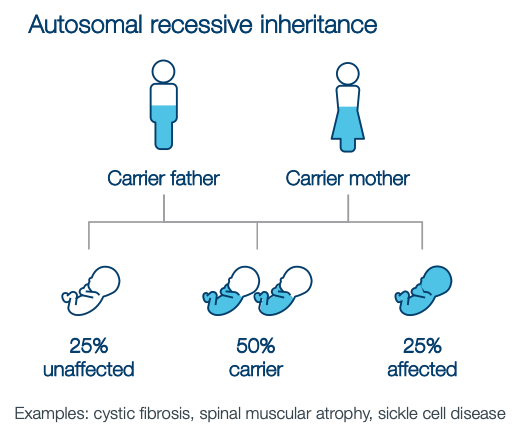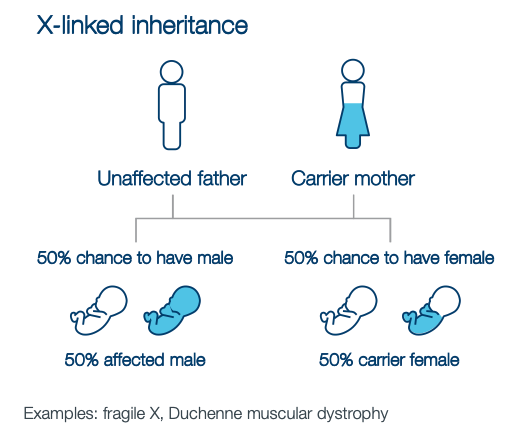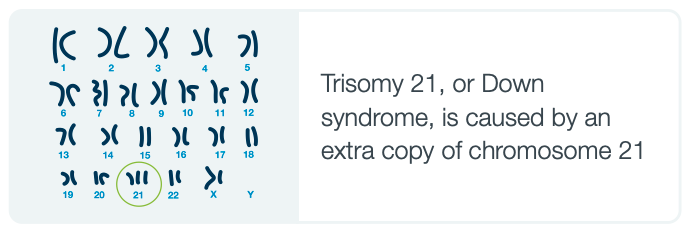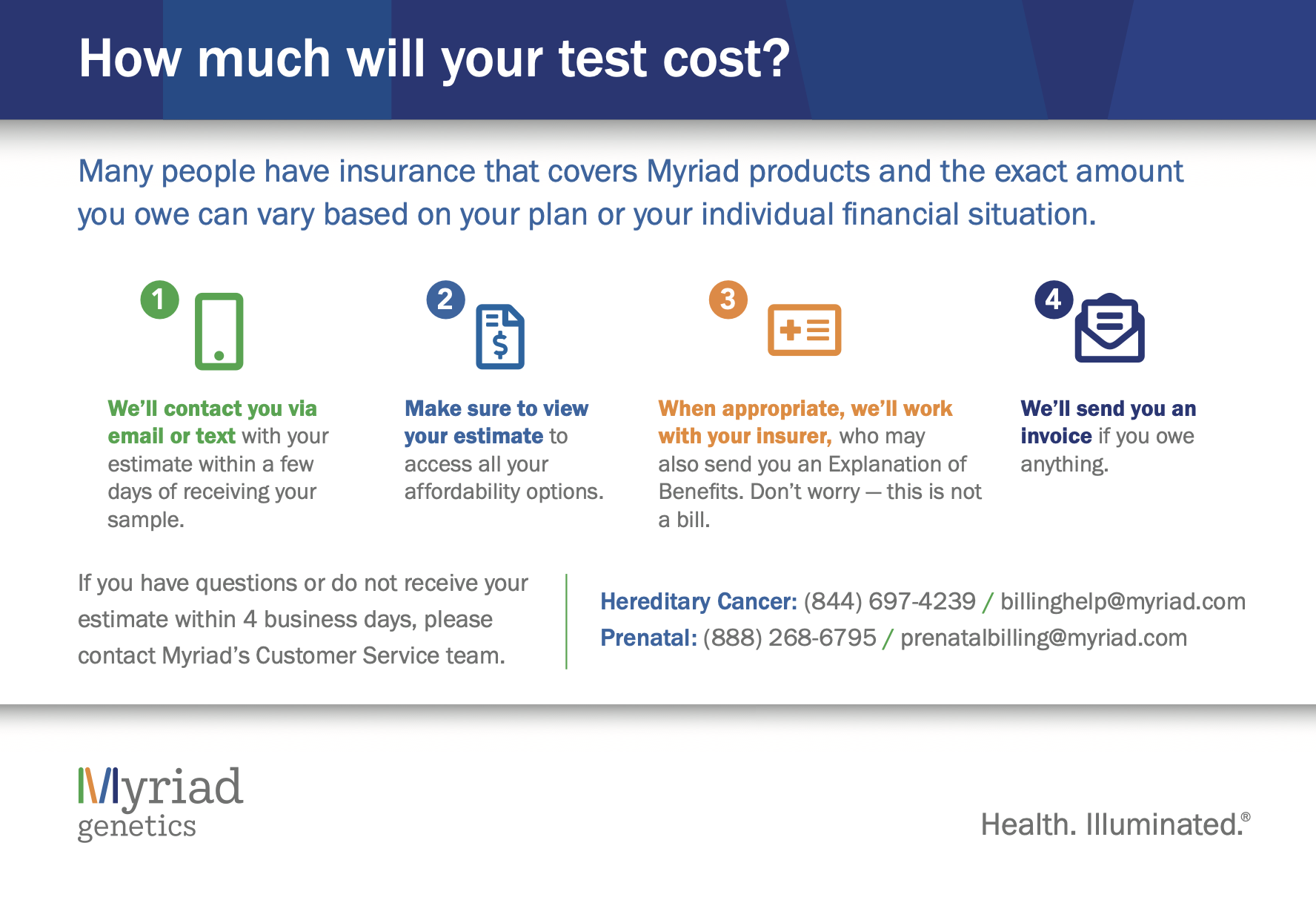SCHEDULE GENETIC COUNSELING
To schedule online, you will need to sign in the Myriad Portal. Once you have signed in, click the "My Consults" tab at the top of the page, then click "Schedule Consult".
To schedule by phone, please call prenatal support at 888-268-6795
GENETIC CARRIER SCREENING
What is Carrier Screening?
Carrier screening is a genetic test that determines your chance of passing on a genetic condition to your baby. Carrier screening...

- Is available to everyone either before or during pregnancy
- Typically only requires a routine blood draw
- Is done for your partner if your results show you are a carrier
What does it mean to be a carrier?
Carriers are typically healthy, but they could have a baby with the genetic condition they carry.


Why get carrier screening?
Many genetic conditions benefit from early medical treatment. Knowing your baby might have a condition can help you...
- Identify a specialized care team to plan for delivery and early treatment options.
- Connect with families of children with the same condition.
- Plan for medical expenses and supplemental insurance.
- Understand risks and options for the future.
What happens after carrier screening?


What is Non-Invasive Prenatal Testing?
Non-Invasive Prenatal Testing, or NIPT, is a blood test performed during pregnancy that...

- Tells whether your baby has a high or low chance of having certain chromosomal conditions, along with providing your baby’s sex.
- Can screen for Trisomy 21 (Down syndrome), along with other chromosomal conditions that involve intellectual disability and health complications that may require medical intervention and shorten lifespan.
What is a Chromosomal Condition?
DNA contains the genetic information that tells our bodies how to function. Chromosomes are the packages that store DNA in our cells. A person usually has 46 chromosomes grouped into 23 pairs. One chromosome in each pair comes from each parent.
- Chromosomal conditions occur when there is an extra or missing chromosome
-
Chromosomal conditions are not usually inherited and occur by chance at conception

Why choose NIPT?
NIPT is an accurate, non-invasive way to determine your baby’s chance of having common chromosomal conditions.


How does NIPT compare with other prenatal chromosome tests?
NIPT
- Blood test evaluating DNA, no risk to baby
- Performed as early as 10 weeks of pregnancy
- Most accurate and comprehensive screening test
Maternal Serum Screening
- Blood test measuring hormones, no risk to baby
- Performed only at specific times in 1st or 2nd trimester
- High false positive rate, misses more at-risk pregnancies
Diagnostic Testing (CVS or Amniocentesis)
- Invasive procedure, small risk of miscarriage
- Performed typically between 12-20 weeks of pregnancy
- Definitive and comprehensive results
COST ESTIMATE

